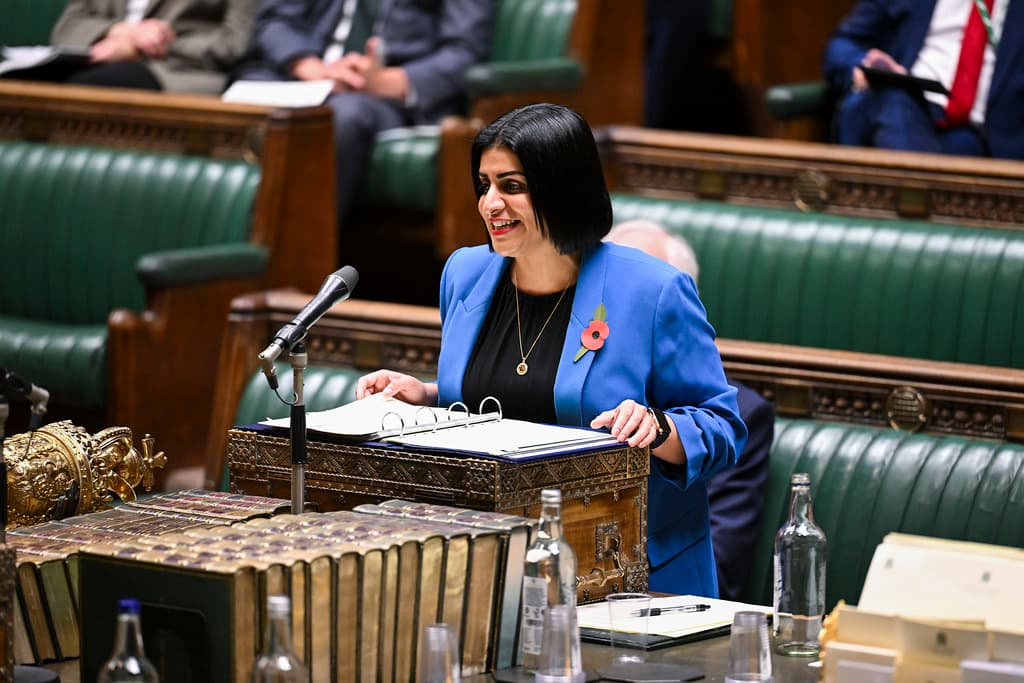UK to Cut Support and Make Refugee Status 'Temporary' in Massive Asylum Shake-Up
The United Kingdom announced it will overhaul its asylum policy, making refugee status temporary and extending the wait for permanent settlement from five years to 20.
The Labour government has been adopting a tougher stance on immigration, particularly concerning illegal small-boat crossings from France. The move is seen as an effort to counter the growing popularity of the populist Reform UK party, which has increasingly set the terms of the immigration debate.
The government indicated it will draw inspiration from Denmark’s stringent approach, which is one of Europe's most restrictive and has faced broad criticism from human rights groups.
Temporary Status and Support Changes As part of the new measures, the Home Office (interior ministry) stated late on Saturday that the statutory obligation to provide support, including housing and weekly allowances, will be rescinded for certain asylum seekers.
The department, led by Shabana Mahmood, clarified that these measures would affect asylum seekers who are deemed able to work but do not, as well as those who break the law. Taxpayer-funded support, it said, would be directed toward those who contribute to the economy and their local communities.
The Home Office also confirmed that protection for refugees will "now be temporary, regularly reviewed and revoked" if their home country is subsequently deemed safe.
"Our system is particularly generous compared to other countries in Europe, where, after five years, you're effectively automatically settled in this country. We will change that," Mahmood stated on Sunday.
She elaborated that under the new system, a refugee's status will be reviewed every two-and-a-half years, marking "a much longer path to permanent settlement in this country of 20 years."
Mahmood is expected to provide further details on Monday, including an announcement regarding Article 8 of the European Convention of Human Rights. While the government intends to remain within the ECHR, it aims to alter the interpretation of Article 8, which covers the right to a family life.
Mahmood asserted that the article is currently being "applied in a way that is designed to frustrate the removal of those that, under our immigration rules, would not have the right to be in this country."
The government's harder line has drawn condemnation. More than 100 British charities wrote to Mahmood, imploring her to "end the scapegoating of migrants and performative policies that only cause harm," arguing such steps fuel racism and violence.
Polls now suggest that immigration has surpassed the economy as the primary concern for British voters. Over the summer, protests were staged outside hotels being used to house asylum seekers at public expense.
In the year ending March 2025, 109,343 people claimed asylum in the UK, representing a 17% increase from the previous year.
Mahmood did state, however, that the government would also look to open more "safe and legal" routes for asylum seekers, asserting that Britain should play its part in assisting those fleeing danger.
The Home Office said its reforms would "match and in some areas exceed" the standards of Denmark and other European nations, where refugee status is temporary, support is conditional, and societal integration is mandated.
Denmark’s approach involves granting temporary residence permits, typically for two years, which must be reapplied for upon expiry. Asylum seekers can be repatriated if their home country is deemed safe.
The Home Office noted that Denmark's restrictive policies have cut asylum claims to a 40-year low and led to the deportation of 95% of rejected applicants.
However, Denmark's reforms have attracted sharp criticism. Rights groups contend the measures foster a hostile environment for migrants, undermine international protection, and leave asylum seekers in a state of prolonged limbo.
Britain's Refugee Council remarked on X that refugees do not "compare asylum systems" while fleeing persecution, but rather come to the UK because of family ties, partial knowledge of English, or other connections that help them safely restart their lives.


